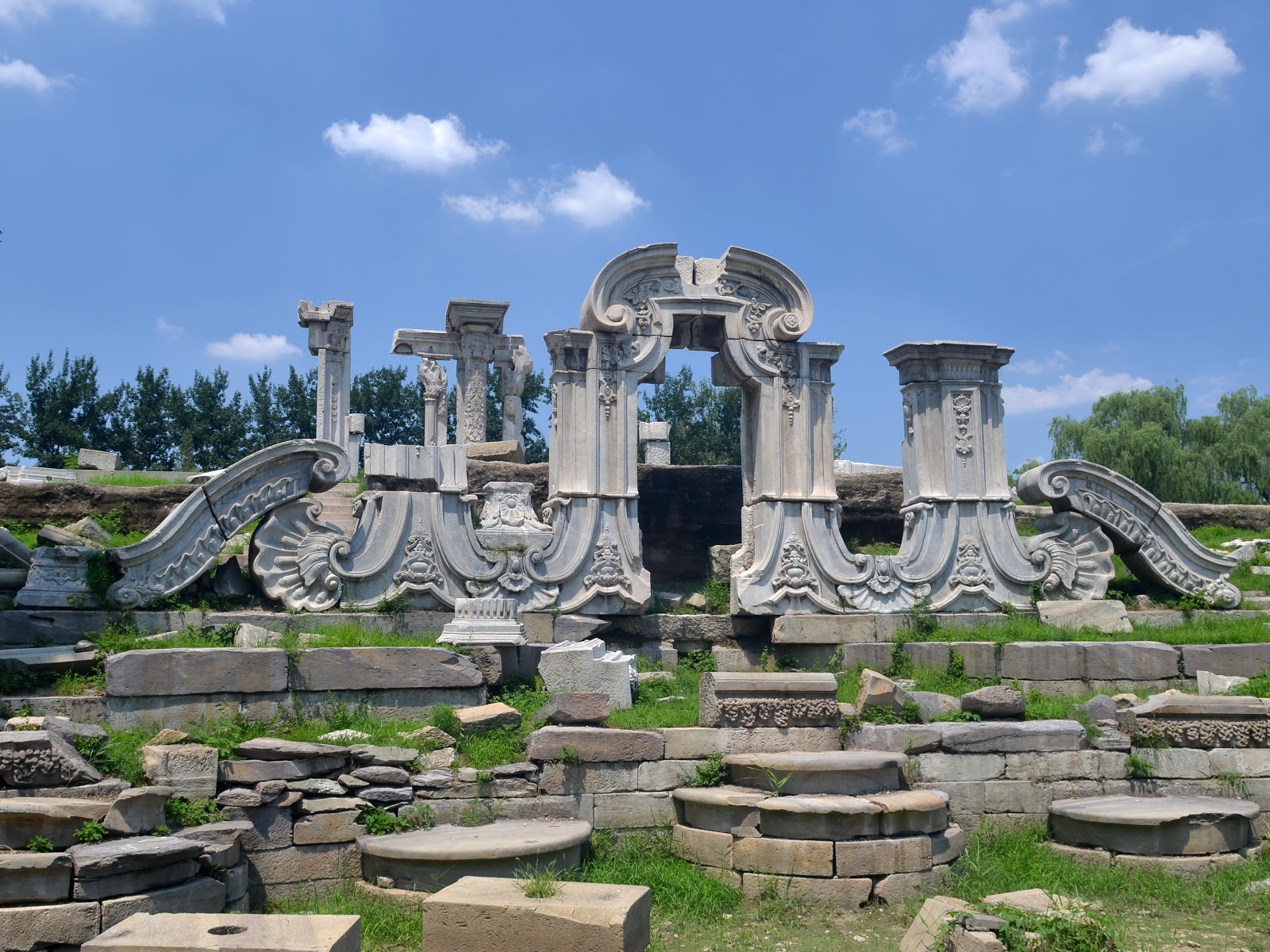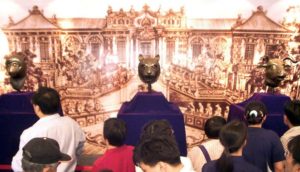Culture heritage officials reject proposals for Yuanmingyuan reconstruction
After years of pleas for a complete reconstruction of Beijing’s Old Summer Palace — also known as Yuanmingyuan, or the Garden of Perfect Brightness — the Chinese National Administration of Cultural Heritage recently clarified that it had no intention of restoring the ruins to their original state.

After years of pleas for a complete reconstruction of Beijing’s Old Summer Palace — also known as Yuanmingyuan (圆明园 yuánmíngyuán), or the Garden of Perfect Brightness — the Chinese National Administration of Cultural Heritage recently clarified that it had no intention of restoring the ruins to their original state.
In a public statement (in Chinese) published on November 5, the administrative agency, which is associated with China’s Ministry of Culture and Tourism and is responsible for the protection of cultural relics of national significance, said that it would be difficult to justify a rebuild due to a lack of “archaeological and historical examples” to refer to. Moreover, a reconstruction would erase the history of Yuanmingyuan being plundered by foreign forces. And for these reasons, rebuilding the Palace requires further “careful consideration” of a host of factors, mainly the idea’s “necessity” and “feasibility,” the administration stated.
The statement was in response to a specific proposal submitted by Yán Jiànguó 阎建国, a delegate of the National People’s Congress (NPC), China’s top legislature. During this year’s Two Sessions meetings, the most critical events in China’s political calendar, Yan put forward a plan to reconstruct the historical site, with an aim to fully utilize it for “educational and patriotic purposes.”
While the administration opposed Yan’s suggestion to return the Palace to its original form, it noted the urgency of making Yuanmingyuan more accessible and appealing to the public — through means such as partial restoration, re-creating the site with digital tools, and public events showing archaeological excavations.
Constructed throughout the 18th and early 19th centuries in a mix of Chinese and European styles, Yuanmingyuan was a resort for Qing-dynasty (1644–1911) emperors during the height of summer. Covering an area of about 3.5 square kilometers (860 acres), it was a vast compound of palaces, pavilions, water features, and art. During the Second Opium War in 1860, the French and British troops looted and burned the site to the ground. This event is a central feature of the official Chinese narrative about the “hundred years of humiliation” at the hands of foreign powers.
After Yuanmingyuan was sacked, its ruins were neglected until the 1980s. Since then, there have been several rounds of restoration. In a 400-million-yuan ($60.5 million) project in 2003, the Yuanmingyuan management administration revived a string of landscape elements like lakes and hills. Last year, it launched a program called “Restoring 1860,” which included the restoration of 11 cultural relics — 10 porcelain items and a Buddhist statue — that were excavated from the remains in recent years. But there has never been a plan to restore the structures of the whole area.
However, calls for a complete reconstruction have never stopped. In 2011, a group of cultural relics officials in Beijing made a proposal to reconstruct Yuanmingyuan, arguing that it would not only benefit Beijing’s cultural development, but also “heal the wounds” left by China’s history of being “a victim of Western imperialism.”
At that time, the proposal was met with overwhelmingly negative responses from the public, with critics fearing that a massive repair would demolish the evidence of Western invasion. In an online poll created by Sina.com, about 77% of the people surveyed said they strongly opposed the proposal, citing concerns about the project’s cost.
Seeing no likelihood of a government-backed reconstruction, some individuals have resorted to other ways to make a replica of the Palace. In 2015, Hengdian World Studios, China’s largest outdoor film studio, saw the completion of the New Yuanmingyuan Palace, which claimed to be a lifesize duplicate of the former royal retreat. In an interview with the China Daily, Xú Wénróng 徐文荣, the founder of the film studio and the mastermind behind the 30-billion-yuan ($4.5 billion) project, said that he wanted to “present the old days’ glory to nurture patriotism among the young generation” and “turn people’s sorrow to eagerness for peace.”

